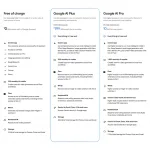
Google For India event highlighted Google’s focus on India for the digital economy. The digital push focused on Connectivity, Local language, Economic Opportunity, and Job creation.
Few years back, Google in partnership with Railtel and Indian Railways made Wi-Fi available to the railway passengers at around 400 train stations. Expanding this, Google WiFied public places and spaces in the country. To this a step ahead, it partnered with the state operator BSNL to bring hi-speed WiFi access to villages in Gujarat, Bihar and Maharashtra. This will open up opportunities for rural masses who have not been able to utilise the power of the internet. Along with this, Google also is launching an initiative to help millions of Indians who use 2G phones get the information they need, without requiring data or an internet connection. The Vodafone-Idea Phone Line—supported by the Google Assistant—enables Vodafone-Idea users to call a single number free of charge (000 800 9191000), at any time, and ask for everything — from sports scores, traffic conditions and weather forecasts or get help with homework. This service is now extended to all English and Hindi-speaking Vodafone-Idea customers across India.
For supporting people to use technology in their local language. Google in its – Discover, the news feed app launched by Google for India last year, with Tamil, Telugu, Bengali, Gujarati, Marathi, Kannada, Malayalam. Oriya, Urdu and Punjabi.
In Google Lens, that gives users information via the application from the smartphone camera just by pointing to an image or even can translate text by pointing will be getting Tamil, Telugu and Marathi language. In their Bolo app that was launched last year for children to make them learn to read, Google is now adding support for Bangle, Marathi, Tamil, Telugu and Urdu language. Google is also expanding its content pool by partnering with publishers like Chotta Bheem and Katha Kids.

With the rise of digital payments, BHIM UPI has transformed how India makes payments. From 17 million payments in August 2017 to crossing 900 million payments last month, India is setting the global standard on how to digitise payments.
Its payment app, the Google Pay has grown than three times to 67 million monthly active users in one year, driving transactions worth over $110Bn on an annualized basis, with hundreds of thousands of offline and online merchants. To enhance Google Pay, Google is introducing the Spot Platform, this enables merchants to create branded commercial experiences that bridge the offline and online worlds. Popular services like UrbanClap, Goibibo, MakeMyTrip, RedBus, Eat.Fit and Oven Story are already on board. Besides this, Google also introduced ‘tokenized’ payment method for debit and credit card holders. This method is a secure way of paying for things using a digital token on your phone rather than your actual card number. Tokenized cards on Google Pay will be rolling out in the next few weeks with Visa cards for HDFC, Axis, Kotak and Standard Chartered banks. Gradually it will also support to Mastercard and Rupay and more banks in the coming months. For small businesses, Google announced Google Pay for Business which does not require any onboarding and verification process and merchants can use it for free.

For people to get jobs and earn their livelihoods, Google is introducing new Jobs effort focusing on entry-level jobs. These jobs will be available as a Spot on Google Pay to help job seekers find and prepare for entry-level positions that fit their needs. It uses machine learning to recommend jobs and training content to help these users prepare for interviews and learn new skills. Jobs also makes it easy for them to apply, schedule interviews and engage directly with potential employers. For this, Google has partnered with National Skills Development Corporation for their Skill India program. As part of this collaboration, Skill India students will be offered a seamless way to get started with Jobs and find better employment. Google is introducing Job Spot with 24 early partners in retail like 24Seven and Healthkart, delivery and logistics partners like Swiggy, Zomato and Dunzo and hospitality providers like Fabhotels.
To support the engineering talent in India and to gain maximum from India’s potential, Google is starting an Google Research India-an AI Lab in Bengaluru.





Leave a Reply